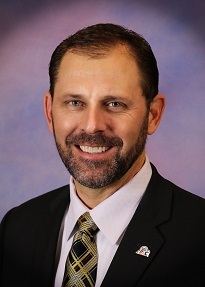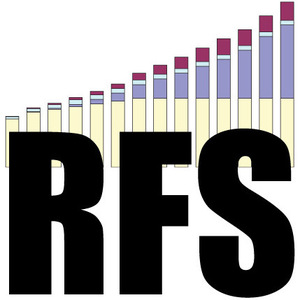Biodiesel industry states its case at US EPA hearing in Ypsilanti






October 30, 2019
BY Ron Kotrba
Biodiesel producers and association staff testified Oct. 30 in Ypsilanti, Michigan, at the U.S. EPA’s public hearing on the supplemental proposal for meeting volume requirements under the Renewable Fuel Standard issued by the agency Oct. 15.
The National Biodiesel Board laid out the case that EPA should account for the impacts of past small refinery exemptions (SREs), properly address the D.C. Circuit’s remand in Americans for Clean Energy and increase advanced biofuel and biomass-based diesel volumes in the final 2020-’21 RFS rule.
“The supplemental notice does not propose to do anything about small refinery exemptions before 2020,” said David Cobb, NBB federal affairs director. “Yet, over 4 billion gallons of demand for biofuels has been lost due to small refinery exemptions from 2016 through 2018. This impact has been particularly significant for biomass-based diesel producers because biomass-based diesel can be used to satisfy multiple categories of fuel under the RFS.”
Kate Shenk, NBB director of regulatory affairs, said the agency should change how it accounts for small refinery exemptions in the final rule as to ensure that volume obligations established by EPA are actually met. “EPA could do so by taking further steps to limit the number of exemptions it grants in the future,” she said. “Or, it could base its estimate for the number of small refinery exemptions in 2020 on the number of exemptions it has actually granted in recent years.”
Advertisement
Advertisement
Kent Engelbrecht, NBB chairman and biodiesel trade manager for Archer Daniels Midland Co., added, “Because this proposal provides no certainty that EPA will follow DOE’s recommendations going forward, it leaves the industry skeptical that the rule will prevent the demand destruction that the industry has been experiencing since EPA increased the granting of SREs in 2016. If EPA proceeds with using an average of DOE’s recommendations, rather than an average of actual waived gallons, the agency will continue to reduce the applicable volumes, creating an effective volume requirement well below what EPA is bound to ensure.”
Brad Wilson, newly elected chair of the Iowa Biodiesel Board and president and general manager of Western Iowa Energy, said, “EPA’s proposal to account for the number of small refinery exemptions is a positive and needed step towards ensuring that small refinery exemptions do not destroy demand for renewable fuels. Unfortunately, EPA is proposing to use an average of past exemptions recommended by DOE rather than actual volumes waived as agreed upon by all stakeholders on Oct. 4 at the White House.” Wilson said EPA’s actions have led to a slow decline in his company’s business. “Western Iowa Energy has run at just 66 percent capacity on average for 2019 ... Several other biodiesel producers in Iowa are running at reduced capacity, and at least one has shut down completely. This is a result of the impacts of small refinery exemptions."
Wilson’s mention of one Iowa plant that has been forced to shut down referenced W2Fuel’s Crawfordsville, Iowa, plant. CEO Roy Strom testified that SREs played a role in his decision to idle production at his 10 MMgy biodiesel manufacturing facility in Iowa and his 15 MMgy plant in Michigan.
Advertisement
Advertisement
“Lack of clarity in EPA policy has created prolonged market turmoil, forcing me to produce at half our capacity since 2018,” Strom said. “The end result is that I had to shut down operations in August.”
Like others, Strom had just been to Ypsilanti three months prior to testify at EPA’s first public hearing on the 2020 RFS and 2021 biomass-based diesel proposals. “I said then that continued granting of small refinery exemptions would likely put me out of business, and it did,” he said. “The shutdown of my plants is having economic impact far beyond just our communities and the families of the 42 individuals that lost their jobs. The economic consequences extend to vendors that support our operations from farmers and truckers to maintenance contractors and even uniform suppliers. Make no mistake, these job losses are directly related to the market havoc resulting from the EPA’s flood of small refinery exemptions granted since early 2018, which have significantly reduced annual volumes and depressed RIN prices to unsustainable levels for the industry.”
Strom said failure to use actual past exemptions without requiring EPA to follow the DOE recommendations provides no accountability in ensuring the mandates will actually be met. “We urge the EPA to reconsider their current proposal to ensure congressional mandates are met and that our industry is not destroyed,” he said. “Losing our biofuels industries would be a major setback for our nation’s farm policies, environmental policies and energy independence.”
Karen Long, project manager for IBB and the Iowa Soybean Association, said, “The only piece of the proposal EPA has proposed to codify into law is that it will make predictions regarding how many small refinery exemptions it will grant for the coming year. However, it does not set in stone how [EPA] will make those predictions. This lack of certainty throughout the supplemental notice is problematic for the renewable fuels industry. Our state’s soybean farmers are also impacted. When the plants produce less biodiesel, they’re not buying products from farmers, like soybean oil, and that harms the farm economy, already under assault. Meanwhile, the oil companies reap profits that should be helping the heartland. When farmers are allowed to participate in the energy market, the American economy wins.”
Others, including ISA farmers and staff, as well as employees of North America’s largest biodiesel producer, Renewable Energy Group Inc., also testified at the hearing.
Related Stories
The USDA has announced it will delay opening the first quarterly grant application window for FY 2026 REAP funding. The agency cited both an application backlog and the need to disincentivize solar projects as reasons for the delay.
CoBank’s latest quarterly research report, released July 10, highlights current uncertainty around the implementation of three biofuel policies, RFS RVOs, small refinery exemptions (SREs) and the 45Z clean fuels production tax credit.
The U.S. EPA on July 8 hosted virtual public hearing to gather input on the agency’s recently released proposed rule to set 2026 and 2027 RFS RVOs. Members of the biofuel industry were among those to offer testimony during the event.
The USDA’s Risk Management Agency is implementing multiple changes to the Camelina pilot insurance program for the 2026 and succeeding crop years. The changes will expand coverage options and provide greater flexibility for producers.
President Trump on July 4 signed the “One Big Beautiful Bill Act.” The legislation extends and updates the 45Z credit and revives a tax credit benefiting small biodiesel producers but repeals several other bioenergy-related tax incentives.
Upcoming Events










